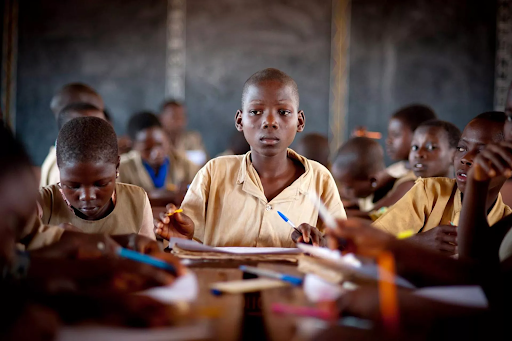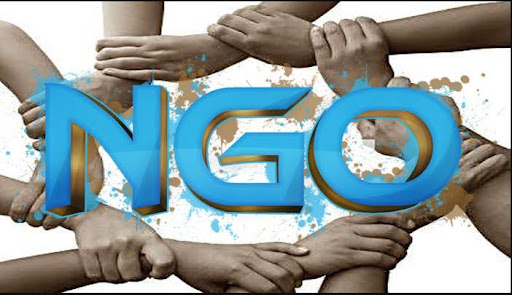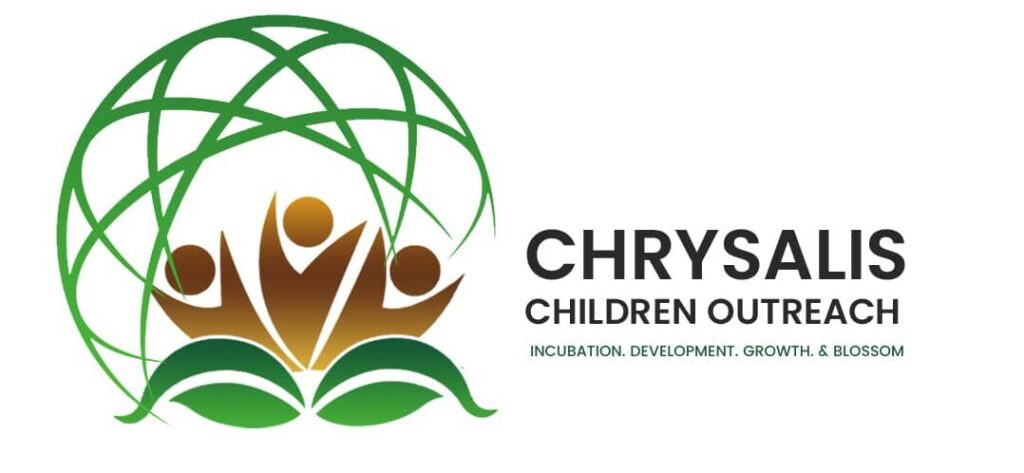Introduction
Childhood should be a time of joy, growth, and boundless possibilities. Yet for millions of children across Nigeria, particularly in the Niger Delta region, poverty casts a long shadow over their dreams and aspirations.
Child poverty in Nigeria remains one of the most pressing issues facing the nation today, with devastating consequences that ripple throughout society.
The Niger Delta, despite its vast natural resources, paradoxically suffers from some of the highest rates of child poverty in Nigeria.
This blog post explores how poverty affects children’s dreams and future prospects while highlighting the critical work of NGOs fighting child poverty and examining sustainable approaches to breaking the poverty cycle for Nigerian children.
Understanding Child Poverty in the Niger Delta
The Niger Delta region of Nigeria presents a stark contradiction: surrounded by valuable oil reserves yet plagued by widespread poverty. Child poverty in Nigeria is particularly severe in this region, where environmental degradation from oil extraction has diminished traditional livelihoods like fishing and farming.
According to recent studies, over 79% of children in the Niger Delta live below the poverty line, making child poverty in Nigeria a critical issue in this resource-rich area.
What does child poverty in Nigeria look like in the Niger Delta? It manifests in inadequate housing, where families crowd into makeshift structures without proper sanitation.
It shows in the faces of hungry children who lack access to nutritious meals. It appears in communities without clean drinking water, where waterborne diseases flourish.
Child poverty in Nigeria within this region extends beyond material deprivation to include limited access to quality education, healthcare, and other essential services.

Several NGOs fighting child poverty have documented how these conditions create a perfect storm that threatens children’s development and future opportunities.
As environmental damage continues to diminish local economic activities, child poverty in Nigeria’s Delta region becomes increasingly entrenched, requiring coordinated efforts between government, communities, and dedicated organisations to address it effectively.
Impact on Physical and Mental Health
Child poverty in Nigeria has profound effects on both physical and mental well-being. In the Niger Delta, where healthcare facilities are scarce and often poorly equipped, impoverished children face significantly higher risks of malnutrition, stunting, and preventable diseases.
Musa’s story illustrates these challenges vividly. At nine years old, Musa lives in a small fishing village near Port Harcourt. His family once sustained themselves through fishing, but oil spills have decimated local fish populations.
“Before the water turned black, my father brought home enough fish for us to eat and sell,” Musa explains. “Now he goes out all day and returns with almost nothing.”
This economic hardship means Musa often goes to school hungry, affecting his concentration and learning. Child poverty in Nigeria has left him chronically undernourished, making him susceptible to frequent illnesses that his family cannot afford to treat properly.
The psychological impact of child poverty in Nigeria is equally concerning. Children like Musa understand their disadvantaged position from an early age, which can lead to feelings of shame, hopelessness, and diminished self-worth.
They witness their parents’ stress and may internalise a sense of limited possibilities for their own futures. The constant uncertainty about basic needs, wondering if there will be food on the table or if school fees can be paid; creates chronic stress that can affect brain development and mental health outcomes.
Child poverty in Nigeria thus creates a double burden: compromising children’s physical health while simultaneously undermining their psychological resilience and emotional wellbeing.
Educational Barriers and Lost Potential
Keywords used: child poverty in Nigeria (3), breaking the poverty cycle for Nigerian children (1)
Education represents the most powerful pathway for breaking the poverty cycle for Nigerian children, yet it remains inaccessible to many. In the Niger Delta, child poverty in Nigeria creates multiple barriers to quality education.
School fees, uniform costs, and materials expenses often prove prohibitive for families struggling to meet basic needs. Even when education is technically free, hidden costs prevent consistent attendance.
The quality of available education poses another significant challenge. Schools in impoverished communities typically suffer from overcrowded classrooms, inadequate facilities, and teacher shortages.
Child poverty in Nigeria thus limits both access to education and the quality of learning experiences for those who do attend.

Consider Amara’s experience: a bright twelve-year-old from Akwa Ibom State with a natural aptitude for mathematics. “I love solving problems,” she says proudly.
“My teacher says I could be an engineer someday.” Despite her potential, Amara’s education remains precarious.
Her widowed mother sells vegetables at the local market, but the income barely covers rent and food. During difficult months, Amara must miss school to help at the market.
“The hardest part is watching other children continue learning while I fall behind,” Amara explains. This interruption of education represents one of the most damaging aspects of child poverty in Nigeria, as gaps in attendance create learning deficiencies that become increasingly difficult to overcome.
Without interventions focused on breaking the poverty cycle for Nigerian children through educational support, talented children like Amara risk having their potential permanently curtailed by circumstances beyond their control.
Dreams Deferred: Aspirational Impact
Every child harbours dreams about who they might become or what they might achieve. Child poverty in Nigeria doesn’t just limit present circumstances; it constrains the ability to envision and pursue future possibilities.
When basic survival consumes a family’s energy and resources, the luxury of nurturing a child’s aspirations often becomes secondary.
In communities across the Niger Delta, children demonstrate remarkable resilience in maintaining hope despite challenging circumstances.
NGOs fighting child poverty report that when asked about their aspirations, children living in poverty express the same diverse dreams as their more privileged counterparts, becoming doctors, engineers, teachers, or business owners.
However, child poverty in Nigeria gradually erodes these ambitions as children grow older and become more aware of the structural barriers they face.
By adolescence, many adjust their expectations downward, setting aside earlier dreams for more immediately attainable goals.
This contraction of aspirations represents an immeasurable loss, not just for individual children, but for Nigerian society, which loses countless potential contributions from talented young people whose development is constrained by poverty.
Child Labour and Lost Childhoods
One of the most visible manifestations of child poverty in Nigeria is the prevalence of child labour. Across the Niger Delta, economic necessity forces children into work, selling goods on streets, serving as domestic help, assisting on farms, or even engaging in hazardous activities like scavenging in waste dumps.
These children sacrifice their education, playtime, and overall development to help their families survive.
Child poverty in Nigeria creates impossible choices for parents who understand the value of education but face immediate survival needs.
A mother interviewed in Warri explained this painful dilemma: “I know my son should be in school, learning things that will help him later. But when we haven’t eaten for a day, his small earnings from helping at the mechanic shop feel more important than what he might learn years from now.”
This prioritisation of immediate needs over long-term development perpetuates intergenerational poverty, making breaking the poverty cycle for Nigerian children particularly challenging.
Child poverty in Nigeria thus steals not only material security but also the fundamental experiences of childhood itself, the freedom to play, explore, learn, and develop without adult responsibilities.
Sustainable solutions must address both immediate economic hardships and create pathways for children to return to education, recognising that breaking the poverty cycle for Nigerian children requires protecting childhood itself.
The Role of NGOs: Creating Pathways to Hope
Across the Niger Delta, NGOs fighting child poverty implement innovative programmes to address the multidimensional challenges facing vulnerable children.
These organisations recognise that effective interventions must tackle both immediate needs and systemic barriers to create sustainable change.
Several NGOs fighting child poverty have pioneered comprehensive approaches that combine material support with educational opportunities and community development.
For example, some provide school scholarships paired with family livelihood support, addressing both educational access and household economic stability.
Others focus on community-based child protection networks that identify at-risk children and connect them with appropriate services.
What distinguishes the most effective NGOs fighting child poverty is their commitment to local leadership and community participation.
Rather than imposing external solutions, these organisations work collaboratively with Niger Delta communities to develop contextually appropriate interventions.
This approach recognises that breaking the poverty cycle for Nigerian children requires solutions grounded in local realities and driven by local stakeholders.

By fostering partnerships between communities, government agencies, and private sector entities, these organisations magnify their impact and create sustained pathways for vulnerable children to overcome poverty’s limitations.
Government Policies and Systemic Change
While individual interventions make meaningful differences in children’s lives, addressing child poverty in Nigeria comprehensively requires systemic policy changes.
The Nigerian government has implemented several initiatives aimed at breaking the poverty cycle for Nigerian children, including conditional cash transfer programmes, school feeding schemes, and expanded educational access.
However, implementation challenges and funding constraints have limited their effectiveness, particularly in remote areas of the Niger Delta.
More robust policy frameworks are needed to protect children’s rights and create enabling environments for families to thrive.
This includes strengthening social protection systems that provide safety nets during economic hardship and investing in public services that benefit the most vulnerable communities.
Breaking the poverty cycle for Nigerian children also requires addressing the environmental degradation that has undermined traditional livelihoods in the Niger Delta, creating economic alternatives that benefit local communities rather than just extractive industries.
Additionally, breaking the poverty cycle for Nigerian children demands greater transparency and accountability in the management of resources, ensuring that the region’s wealth translates into tangible improvements in children’s well-being.
When policies align with children’s best interests and are implemented effectively, they create the structural conditions necessary for sustainable poverty reduction.
Community-Based Solutions: The Power of Local Action
Some of the most promising approaches to child poverty in Nigeria emerge from within the affected communities themselves.
Across the Niger Delta, community-based organisations develop contextually appropriate solutions that build on local strengths and address specific challenges.
These grassroots initiatives often operate with limited resources but achieve remarkable results through deep community engagement.
For example, women’s cooperatives in several Delta communities have created rotating savings groups that fund educational expenses for vulnerable children.
Youth mentorship programmes connect children with local role models who have overcome similar circumstances. Community childcare arrangements enable parents, particularly single mothers to pursue income-generating activities while ensuring children receive proper care.
NGOs fighting child poverty increasingly recognise the value of these community-driven approaches and provide technical support and resources to enhance their effectiveness. This collaborative model respects local knowledge while providing additional capabilities for breaking the poverty cycle for Nigerian children.
The sustainability of these initiatives stems from their rootedness in community ownership and their responsiveness to local realities. When external support aligns with community priorities and builds local capacity, the impact endures long after specific projects conclude.
Technology and Innovation in Fighting Child Poverty
Technological innovations offer promising new tools for addressing child poverty in Nigeria, particularly in remote areas of the Niger Delta where traditional services struggle to reach.
Mobile health applications now connect isolated communities with medical expertise, enabling remote diagnosis and treatment guidance.
Digital educational resources help bridge learning gaps when physical schools are inaccessible or inadequate.
Several NGOs fighting child poverty leverage these technologies to extend their reach and enhance programme effectiveness.
Digital platforms facilitate direct cash transfers to vulnerable families, reducing administrative costs and ensuring assistance reaches intended beneficiaries.
Data analytics help organisations identify communities with the greatest needs and measure intervention outcomes more precisely.
However, the “digital divide” presents challenges in fully realising technology’s potential. Many impoverished communities lack reliable electricity and internet connectivity, and technological literacy varies widely.
Successful technological approaches must account for these realities, combining digital innovations with appropriate offline components that ensure accessibility for the most marginalised children.
A Call to Collective Action
The challenge of child poverty in Nigeria, particularly in the Niger Delta, demands urgent and coordinated action from all sectors of society.
While NGOs fighting child poverty play a crucial role in implementing targeted interventions, lasting change requires the engagement of government, businesses, communities, and individuals working in concert.
Breaking the poverty cycle for Nigerian children is both a moral imperative and a practical necessity for national development.
When children’s potential is cultivated rather than constrained by poverty, the entire society benefits from their future contributions. The stories of children like Musa and Amara remind us that behind statistics lie real lives with both extraordinary challenges and remarkable possibilities.
By combining immediate assistance with systemic reforms, community empowerment with policy advocacy, and individual compassion with collective action, we can create a Nigeria where every child, regardless of where they are born has the opportunity to dream boldly and build a future limited only by their aspirations rather than their circumstances.
